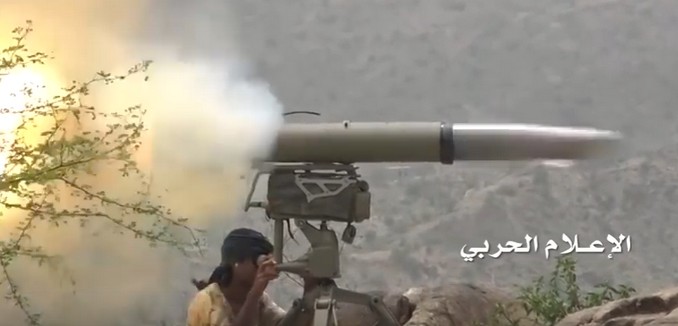Iran’s Islamic Revolutionary Guard Corps is smuggling arms shipments to Houthi rebels in Yemen through a new route across the Gulf, Reuters reported on Tuesday.
In the past, Iran shipped military equipment and personnel either directly to Yemen or via Somalia, but sought new routes after several shipments were confiscated by international patrols. From September 2015 through March 2016, four intercepted Iranian shipments yielded more than 5,000 AK-47 rifles, 80 antitank guided missiles, as well as machine guns and sniper rifles, according to data released by the United States Navy earlier this year.
But an inside source told Reuters that over the last six months, the IRGC has used a different channel further up the Gulf between Kuwait and Iran as it looked for new ways to covertly support its Shiite affiliates in Yemen.
“Parts of missiles, launchers and drugs are smuggled into Yemen via Kuwaiti waters,” a senior Iranian official said. “The route sometimes is used for transferring cash as well.”
The official added that “what is especially smuggled recently, or to be precise in the past six months, are parts of missiles that cannot be produced in Yemen.” Notably, Kornet anti-tank missiles—a weapon possessed by Iran, but not part of Yemen’s looted stockpiles—have been reported on the battlefield, as have other advanced systems, including armed drones.
A second official confirmed the involvement of the powerful IRGC. “No activity goes ahead in the Gulf without the IRGC being involved. This activity involves a huge amount of money as well as transferring equipment to Iranian-backed groups in their fight against their enemies,” he said.
The report is further evidence of Iranian weapons being shipped abroad, despite a UN restriction on arms transfers from Iran. The illicit activity marks a direct violation of UN Security Council resolution 2231, which formalized the 2015 nuclear deal with Iran, and gives the Trump administration grounds to decertify the nuclear deal with Iran.
The Islamic Republic has faced allegations in the past over violating the embargo in support of proxies in Lebanon, Iraq, Syria, the Palestinian territories, and Yemen.
This March marked two years since the start of the brutal war in Yemen between the Western-backed Saudi-led coalition and the Iran-backed Houthi rebels. Iran has significantly stepped up its support for the Shiite group in recent months, with the goal to consolidate power on the Arabian Peninsula and establish a Shiite crescent to project its power across the Middle East.
[Photo: News of Yemen / YouTube ]




